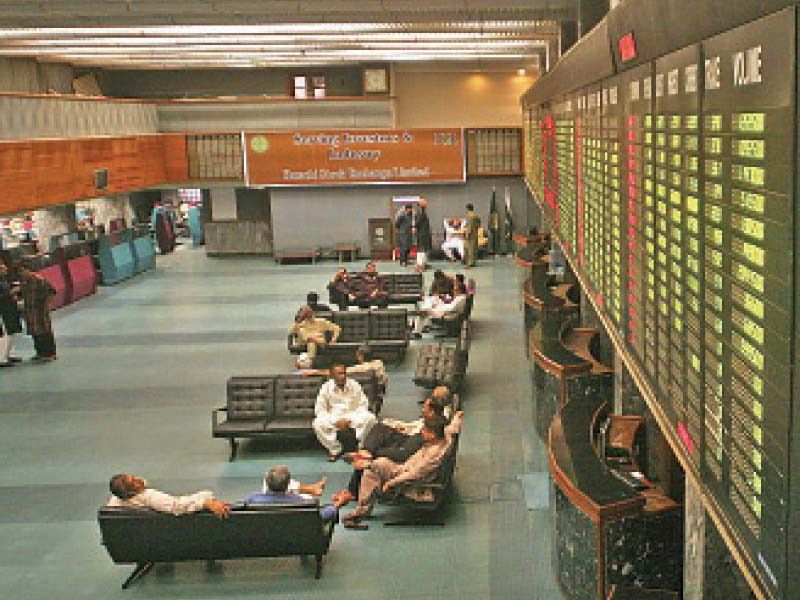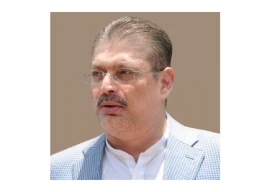
The new International Monetary Fund (IMF) loan programme of $3 billion has given an economic roadmap to Pakistan for a short-to-medium duration, covering three quarters of the current fiscal year, including the period of caretaker government ahead the next general elections scheduled for later this year.
Experts believe that the lifeline, made available for the July-March period, has revived investor confidence in the domestic economy and started delivering the promising results immediately. The domestic capital markets have reaped the fruits.
They, however, regretted the seven-month delay in taking the IMF on board, saying that the delay badly damaged the domestic economy amid change of finance minister in September 2022.
The six-decade high inflation in May 2023, record high interest rate at 22% and a massive depreciation of 28% in the rupee value – to Rs286 to a dollar in FY23 – were mostly the result of that delay in the revival of the IMF programme, they said.
The new programme has removed the biggest uncertainty that how Pakistan’s economy would survive without the IMF till the next elected government coming to power, Samiullah Tariq, the head of research at the Pak-Kuwait Investment Company (PKIC), said.
Tariq added that the deal also removed the uncertainty about what would happen, especially, during the caretaker government set-up without the availability of the required foreign exchange.
There were doubts earlier that the IMF would not deal with the outgoing coalition government and it would wait until a new government came to power at the Centre after the general elections, he said.
Tahir Abbas, the head of research at Arif Habib Limited, believed that the new programme had given a complete economic roadmap to run the economy in the short- to medium-term.
“The roadmap gives guidelines to the outgoing government, to the forthcoming caretaker government and the government to come to power after the next parliamentary elections in 2023,” Abbas said.
Both Abbas and Tariq held the view that the IMF programme started delivering the desired results immediately, as it successfully revived investor confidence in the markets.
The stock market, they said, staged a historic rally as well as the rupee made substantial gains against the greenback. It also helped reduce gold price in an immediate reaction from significantly high that had gone out of the purchasing power of the common man.
On Monday, the Pakistan Stock Exchange (PSX) benchmark KSE-100 Index made single largest gains of 2,446 points or 5.9% in a day to reach a 14-month high of 43,899 points.
Finance Minister Ishaq Dar said in a tweet that the rupee came to Rs270/272 against the US dollar in the open market compared to Rs290 closing on the last working day on Tuesday, June 27, 2023. Similarly, the price of gold decreased by Rs8,800 to come to Rs207,200 per tola.
The two experts see the latest IMF programme as better than the previous one of $7 billion that expired prematurely on June 30. It would help the government properly operate domestic currency markets on professional lines, overcome shortfalls in revenue collections through little adjustments in tax rates like the petroleum development levy (PDL), and adjust energy tariffs (power and gas) to overcome the chronological issue of circular debt.
The programme set the stage for receipt of additional soft loans from other multinational institutions and friendly countries of around $1.5 to $2 billion over the next 12 months, boost foreign exchange reserves to $7-8 billion by end of December 2023 from the current $4 billion, create financial capacity to reopen imports and gradually turn around industrial production and accelerate economic activities in FY24, they added.
However, one thing the nation should not forget is that the arrangement of $3 billion is made for short period and the three governments, including the caretaker one, could not introduce economic reforms like how to fix energy sector in the long-term, how to widen the tax net, how to fix loss-making state-owned entities (SOEs) and run the privatisation programme, they said.
Such reforms are expected to be made under the next government which would likely negotiate and acquire a bigger IMF programme, they said.




1725612926-0/Tribune-Pic-(8)1725612926-0-165x106.webp)













COMMENTS (2)
Comments are moderated and generally will be posted if they are on-topic and not abusive.
For more information, please see our Comments FAQ